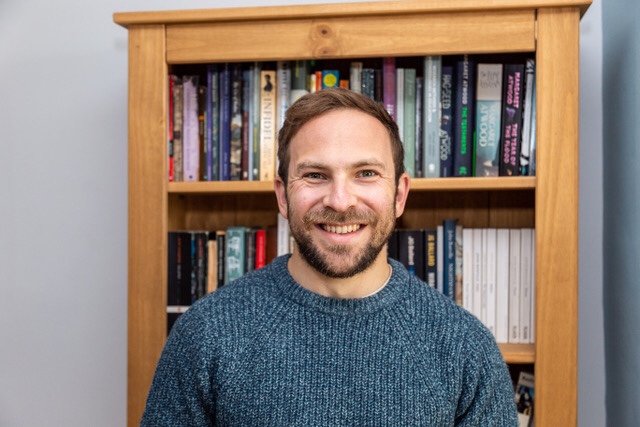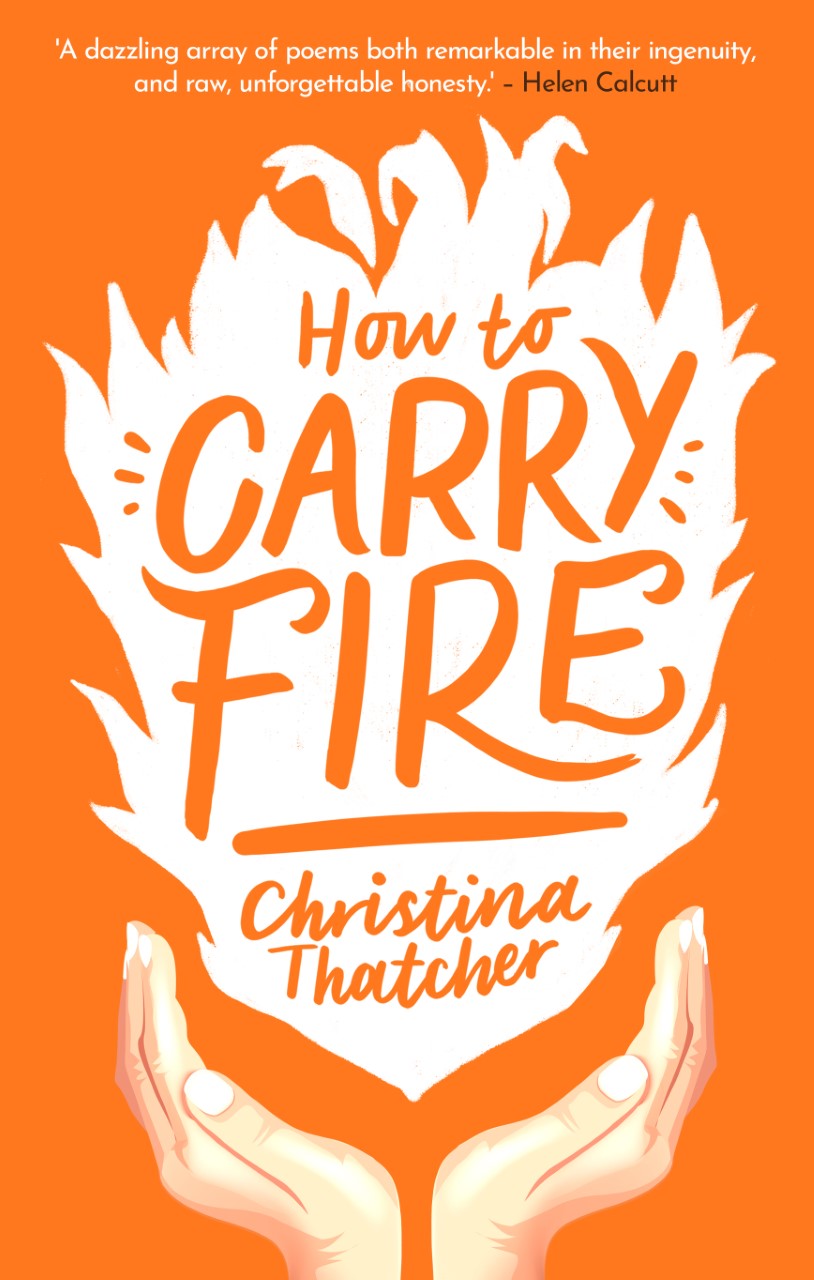Christina Thatcher’s How to Carry Fire (Parthian, 2020) is her second collection of poetry. It’s a fierce, impassioned, and (at times) scary collection that details the persona’s two families: her US family (mother, father, brother) beset by a range of tragedies, and her newly-forming Welsh family consisting of the persona and her husband.
The literary topic of families is well trodden, and literature has often promoted the Zeitgeist, be that Romeo and Juliet registering the growth of romantic love, Jane Austen’s many examples of heterosexual marriage solving social issues and guaranteeing the righteous transfer of inherited wealth, or even someone like Edna O’Brien explaining the difficulties of being a divorced, single mother. Nowadays, much research is concerned with exploring what a non-heternormative, nuclear family might look like, and often this research comes under the banner of the ‘queer family’. How to Carry Fire also thinks through the nature of contemporary families, and below I provide a way of thinking about the text’s families as ‘queer’.
In ‘Siblings’, the important tether between the persona and her brother is made plain. They have both inherited an element of their father, such that:
When I talk to you, I talk to him.
When you talk to me, you talk to him.
When we talk to each other he comes
to move our mouths until we
hardly hear ourselves.
‘Siblings’ in Christina Thatcher’s How to Carry Fire (Cardigan: Parthian, 2020), p. 13
The overbearing father is not untypical of families everywhere (expressed best in ‘Legacy’ in How to Carry Fire), but ‘Siblings’ affirms the close-knit nature of this US family. Even if the father overbears, he is a gravitational centre around whom the siblings can orbit. The father is shared by sister and brother.
These close ties between the siblings are affirmed in ‘An Improper Kindness’, which also registers the brother’s admission into rehab. ‘Leave rehab,’ it begins starkly, and continues familiarly: ‘Come sit on my knee / like you did when you were my / much littler brother’ (p. 20). The familiarity of the opening jars with that stark, two-word opening sentence. And as the poem unfolds, we read the persona try to take care of her brother:
Now I should say:
you must start againwith new medicine, new job, new girl,
new family, new home.
‘An Improper Kindness’ in How to Carry Fire, p. 20
This emotional nursing becomes possible through poetry, and thus the family afflicted by tragedy (a house fire, suicide, drug addiction) is forged anew in Thatcher’s verse. The ‘should’ of ‘I should say’ becomes both the premise of poetry and of the family.
The Welsh family is also knowingly constructed. In ‘Monogamy’, a poem that resembles a sonnet (its thirteen lines hint at the form), the persona opens by declaring that monogamy ‘is the construction we do in the dark’ (p. 55), making plain what was implied in ‘An Improper Kindness’. By the end, the ‘we’ of wife and husband ‘learn to trust / we’re building something sturdy, / we’re not in this alone’. Through the vocabulary of building, this ethic of collective will is actual in ‘Monogamy’, whilst only virtual in ‘An Improper Kindness’.
The two come together neatly in ‘Transport Decisions’, a poem in which
The taxi driver asks
if my parents live in Wales
or the US and I tell him
Pennsylvania, but decide to lie
‘Transport Decisions’ in How to Carry Fire, p. 41
about the rest[.]
The ‘lie’ is the strength of the virtual US family that the persona tries to cultivate. The root of the word ‘poetry’, the Ancient Greek word poiesis means to create, and this definition is applicable to Thatcher’s verse, especially in relation to the US family. After all the ‘lies’, the poem finishes with the simple statement that ‘in this Cardiff cab, we are / a happy American family’ (p. 41). Notice how the ‘we’ of ‘Monogamy’ is present in ‘Transport Decisions’—i.e. the wife and husband taking the taxi—but that the ‘we’ in ‘Transport Decisions’ is actually the absent, fractured, and apparently no-longer-existent US family. And yet that ‘we’ is fashioned and presented positively.
This collision of the two families and their (apparently opposed) worlds reveals just how reliant the families’ respective poetic creations are on one other. It is not simply a matter of ‘successful’ and ‘failed’, of ‘loving’ and ‘unloving’, or even of ‘now’ and ‘before’. Instead, these families are shadow images of one another, and the reader’s journey through How to Carry Fire is in part about coming to understand how the delicate business of living in or with a family is always an act of creation.
To this end, the families here are queer inasmuch as they reject the heteronormative, nuclear family of mother, father, and 2.4 children; but they are also just normal families in How to Carry Fire. That is, all our families are normal, because we live (in) them day by day.


Leave a Reply